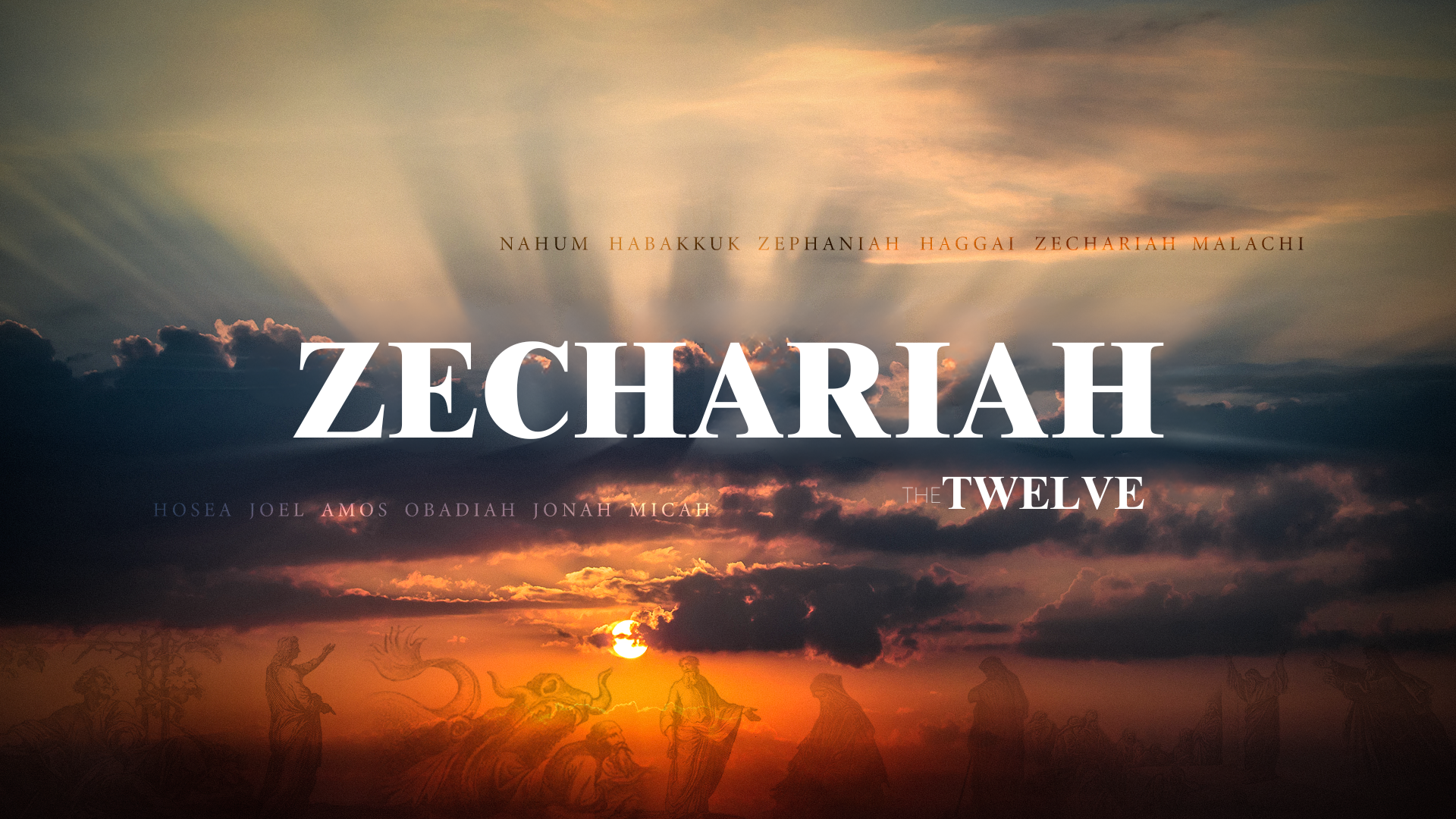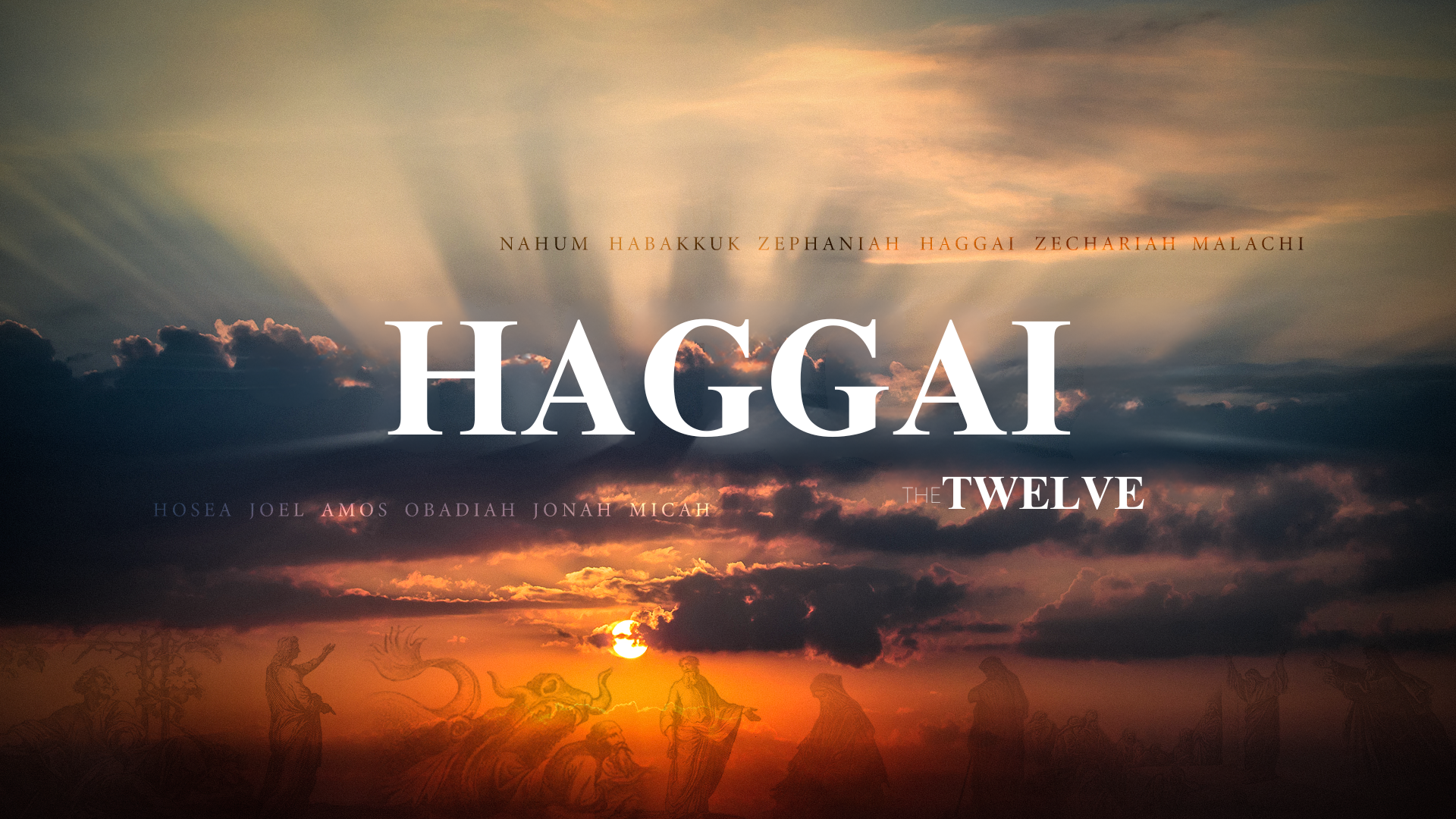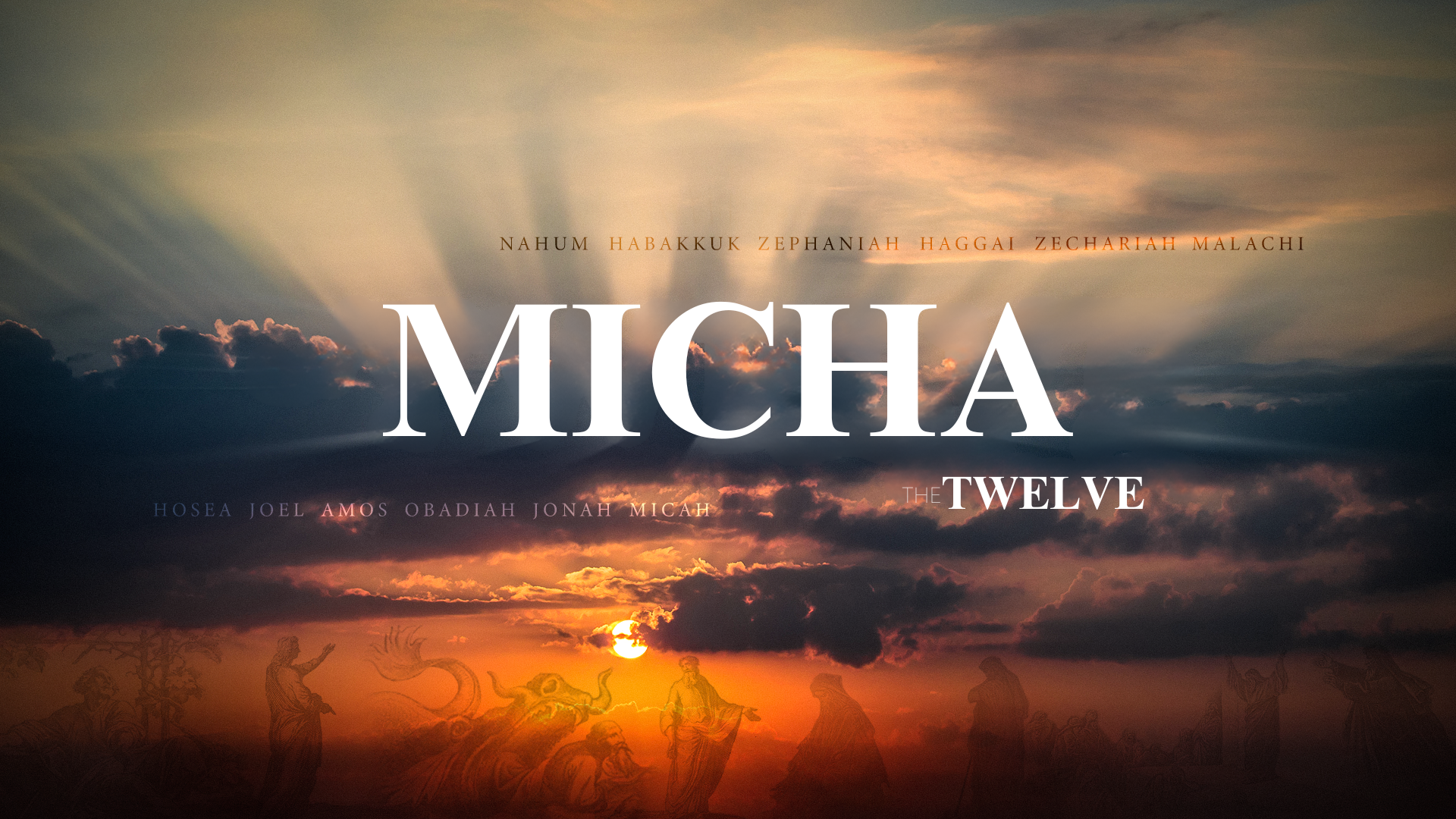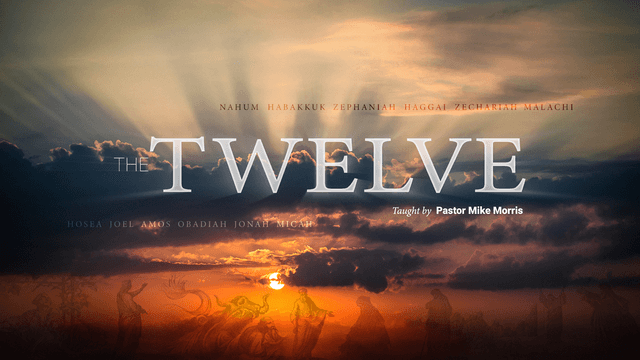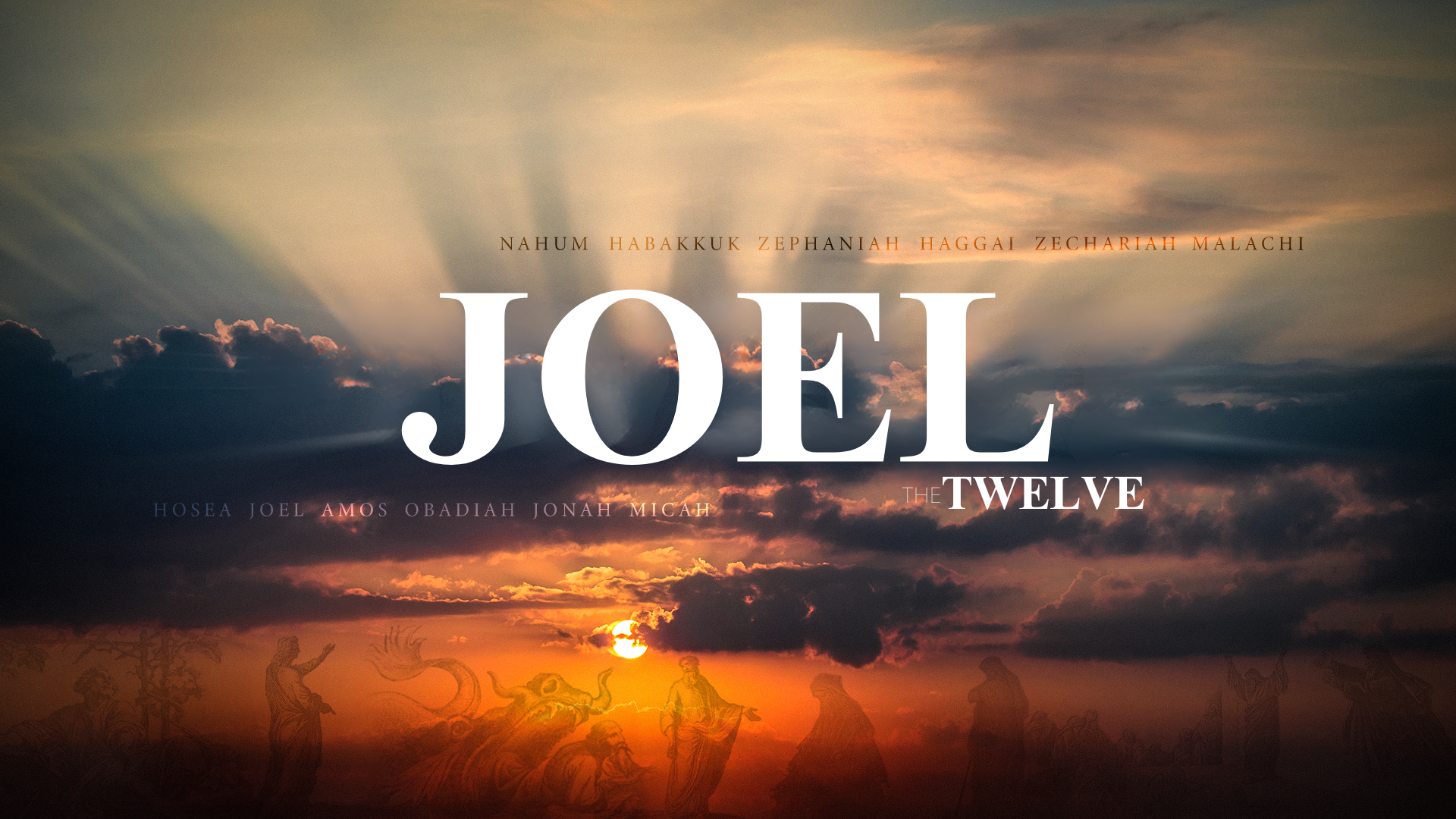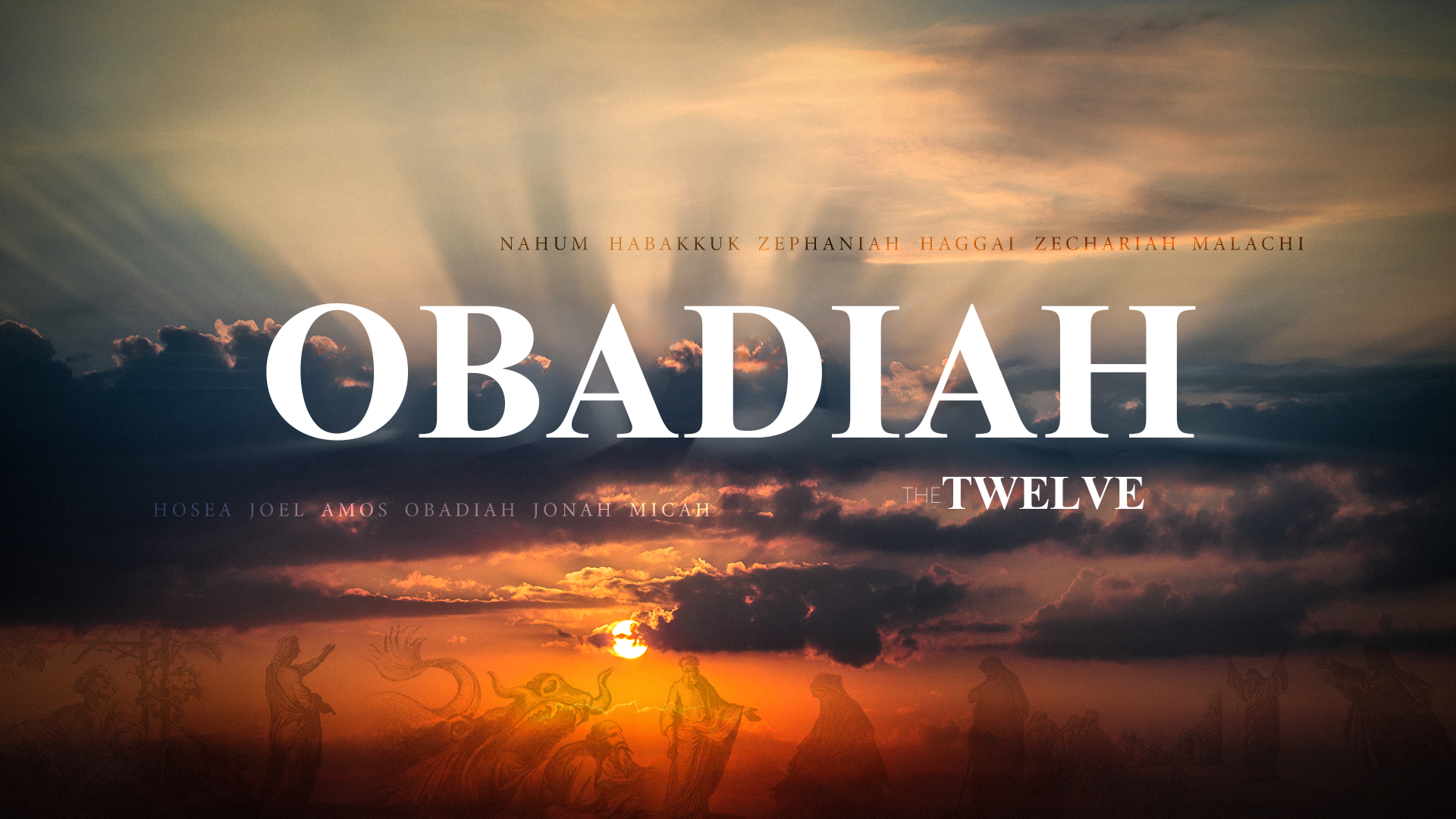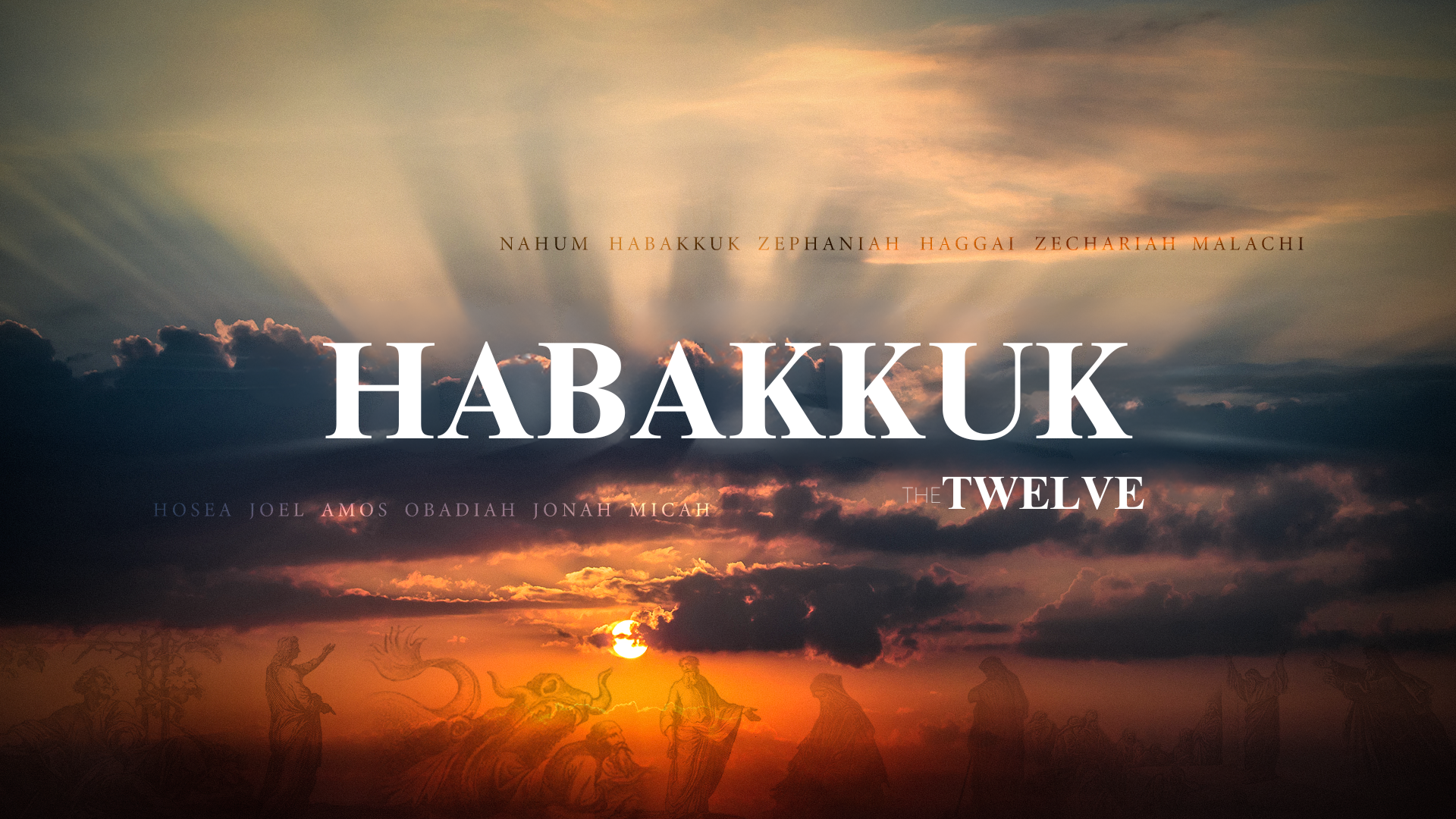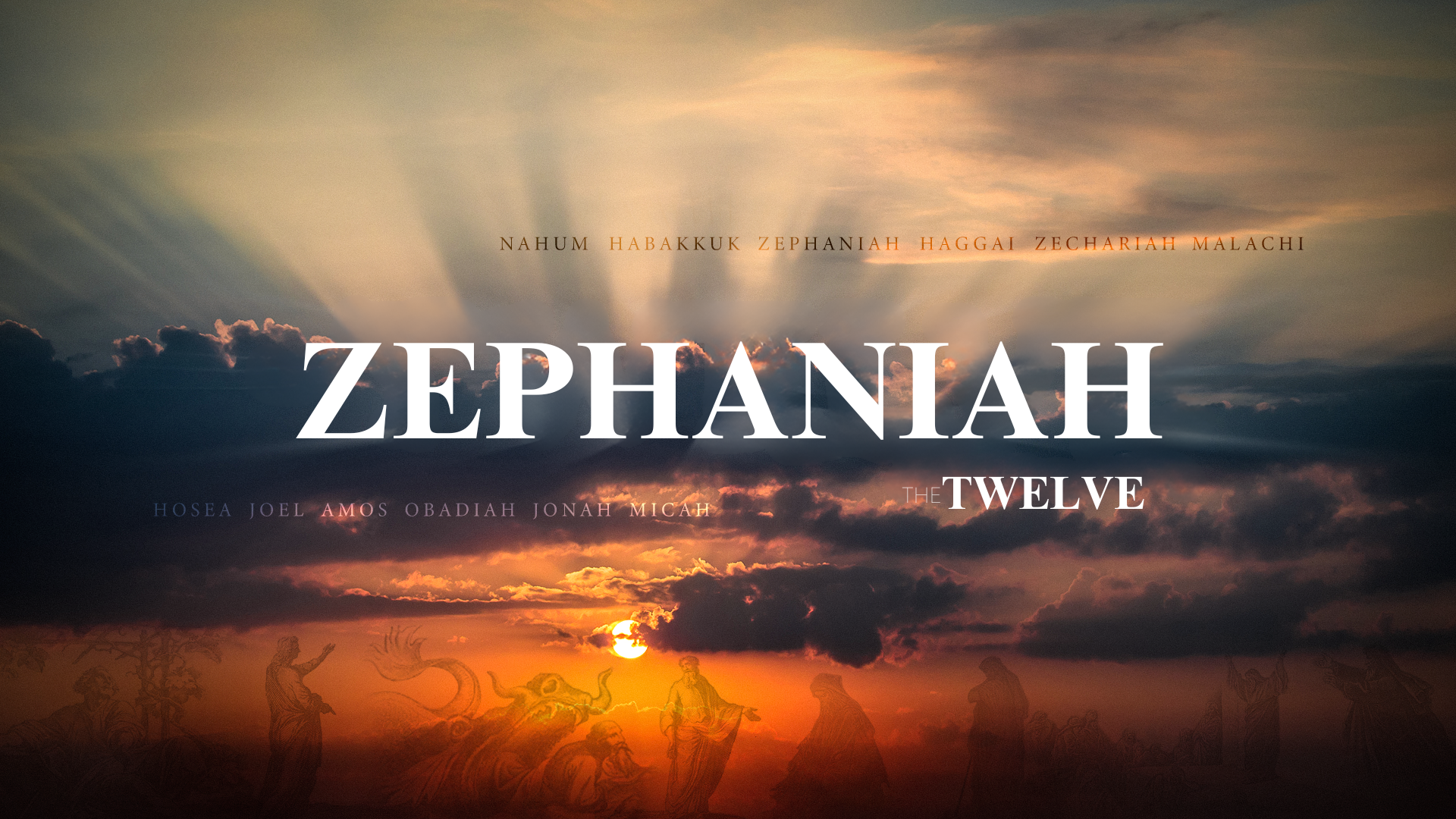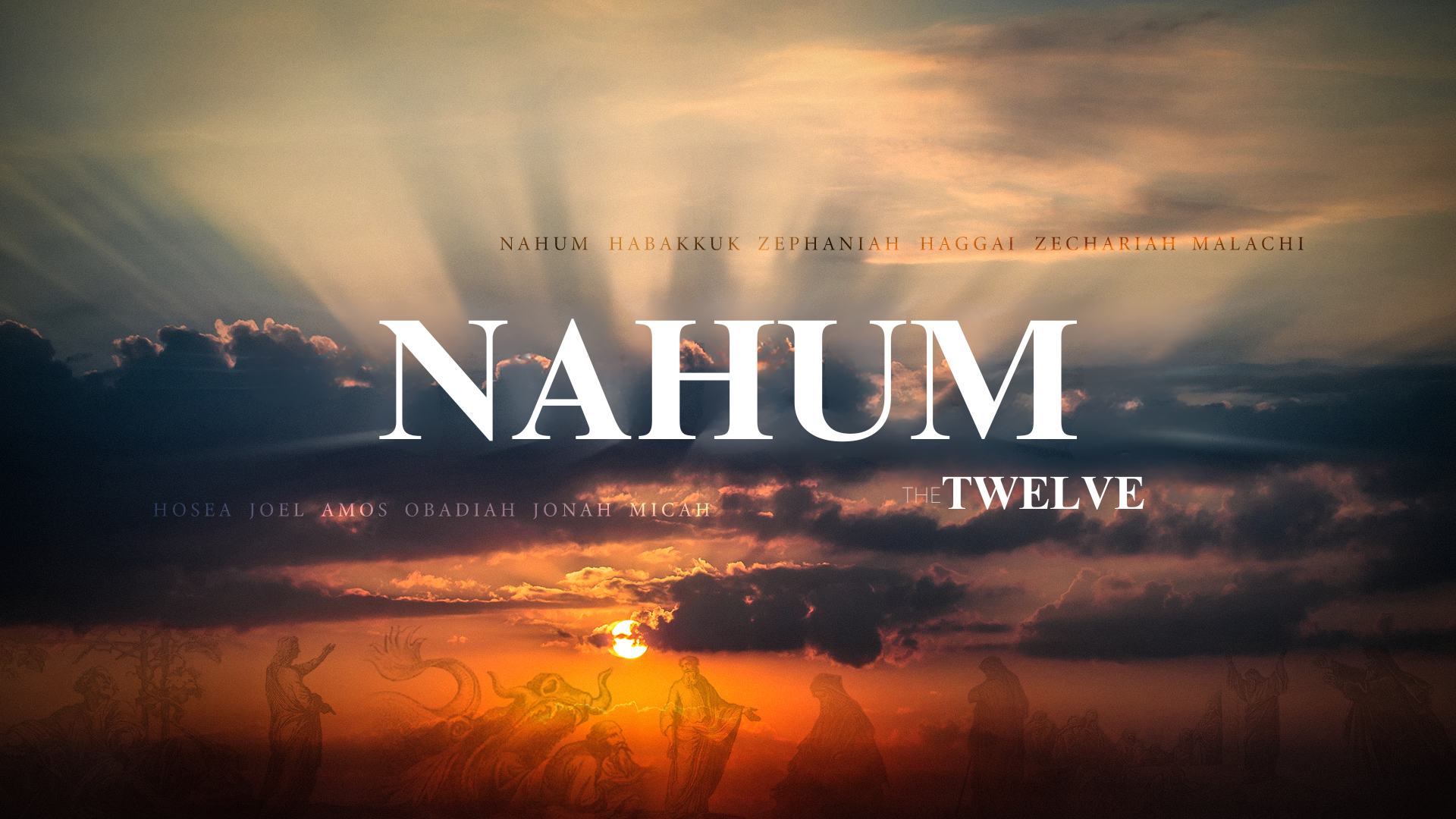MANUSCRIPT
Tonight, we continue our study of the book of Zechariah in chapter six.
As we begin, let’s review.
Repent and return to God.
#1: God will bless His people.
#2: God will judge the wicked nations.
#3: He will yet glorify Jerusalem.
#4: Israel will be forgiven, cleansed, and restored.
#5: The Holy Spirit will empower God’s people.
#6: Unrepentant sinners will be judged.
#7: God will contain and banish wickedness.
#8: God will send out His holy angels in judgment.
Tonight, having completed our study of all eight of Zechariah’s visions, we turn to the next portion of the book, a portion I call the narratives, or words. There are three, and we’ll look at the first one tonight. So let’s turn to Zechariah 6.9-15.
As we begin, let me draw a thread from the visions to tonight. From the first vision of the Man among the myrtle trees to the eighth vision of the chariots of God roaring out from the city of God to bring the judgment of God to the enemies of God, we’ve seen a relentless focus on the Messiah. He’s the Angel of the Lord, He’s the divine eternal king, He’s the Man with a measuring line preparing for that kingdom. He’s the One Who forgives and cleanses His people, He’s the Light of the World, He’s the glory of God, He’s the fulfillment of the Law of God, He’s the holy and righteous Judge, and He’s the Lord of Hosts in command of angel armies.
Now we see the Father’s purpose for His Son, and it’s earth-shaking.
The Enactment
To set the stage, the long night of visions has concluded, and probably the next morning, Zechariah sees a group of Jews approaching from the north.
9 And the word of the Lord came to me: 10 “Take from the exiles Heldai, Tobijah, and Jedaiah, who have arrived from Babylon, and go the same day to the house of Josiah, the son of Zephaniah. 11 Take from them silver and gold, and make a crown, and set it on the head of Joshua, the son of Jehozadak, the high priest.
Notice the change of the opening statements of the visions, from “I lifted up my eyes and saw,” to the opening statements of these next passages, “and the word of the Lord came to me.”. It is found here, 7.1, and 8.1.
The men are from the Jewish community still living in Babylon, the ones Yahweh expected to return to Judah. The exiles arrive with an offering for the construction of the Temple. Possibly, these men were already known to the Jews living in Jerusalem.
Zechariah receives the offering and escorts them to the house of Josiah, the son of Zephaniah. Not much else is known of him, though his hospitality is commendable. Then he takes the silver and gold in order to make a crown. The Hebrew is plural, similar to Revelation 19.12, where Christ is said to wear many diadems, another word for “crown”. Most likely, this was an exquisite royal crown, made of intertwined gold and silver elements, fit for a king.
Zechariah’s task is a strange one. Hard to see a reason the Judean Jews would need a crown, since they had no king, but instead a governor, Zerubbabel, under the authority of the Medo-Persian emperor.
But the key to this enactment isn’t the crown, it’s who’s wearing the crown. Zechariah is told by the word of the Lord to place the crown on the head of Joshua, the high priest. And take note of this, just as Joshua was already a high priest and the office of King was symbolically added to him with the crown, so was Jesus our Great High Priest in His earthly incarnation, and then exalted to be the King of kings.
The Explanation
Now we learn what this unusual event is really about.
12 And say to him, ‘Thus says the Lord of hosts, “Behold, the man whose name is the Branch: for he shall branch out from his place, and he shall build the temple of the Lord. 13 It is he who shall build the temple of the Lord and shall bear royal honor, and shall sit and rule on his throne. And there shall be a priest on his throne, and the counsel of peace shall be between them both.”’
Zechariah is instructed to speak to Joshua, the high priest, as he places the crown on his head. From a strictly OT perspective, this entire narrative makes no sense. Priests could never be kings, and kings could never be priests. God forbade it by scriptural injunction; kings had to come from the tribe of Judah, according to Genesis 49.10. 10 The scepter shall not depart from Judah, nor the ruler's staff from between his feet, until tribute comes to him; and to him shall be the obedience of the peoples. And the priests, the house of Aaron, had to be from the tribe of Levi. Exodus 28.1. “Then bring near to you Aaron your brother, and his sons with him, from among the people of Israel, to serve me as priests—
God also forbade it by example. King Uzziah of Judah was a good king and walked in the ways of his father, David. But he became proud, tried to burn incense in the Temple, and suffered for it, as he was immediately stricken with leprosy. He never entered the temple again and was replaced by his son.
In Israel, the merger of the offices of king and priest was unthinkable because God had simply forbidden it. So Joshua would have considered it impossible that he would ever wear a kingly crown. So what could this unexpected coronation mean?
This is the key. Let’s look at the text again.
12 And say to him, ‘Thus says the Lord of hosts, “Behold, the man whose name is the Branch: for he shall branch out from his place, and he shall build the temple of the Lord. 13 It is he who shall build the temple of the Lord and shall bear royal honor, and shall sit and rule on his throne. And there shall be a priest on his throne, and the counsel of peace shall be between them both.”
This is perhaps the most significant messianic prophecy in the OT. We must clearly see two things here: who is the Branch, and what does it mean for the Branch to be both a priest and a king. Zechariah is instructed to speak to Joshua, “Behold, the man. This sounds almost New Testament as it sets the focus squarely on the Messiah, the promised Savior. All that follows is related to this, to the identity of Messiah as a Man, specifically, the One who is fully God and fully Man. We see this phrase repeated in John 19.5. 5 So Jesus came out, wearing the crown of thorns and the purple robe. Pilate said to them, “Behold the man!” If the Jewish religious leaders and the crowd had not been so crazed with bloodlust to kill Jesus, they might have heard the echo of Zechariah’s prophecy in Pilate’s words, but they did not.
This Man has a name, and that name is the Branch: whose name is the Branch. This name is mentioned in several other places in Scripture. Listen to these passages as they describe the Messiah: Isaiah 4.2. 2 In that day the branch of the Lord shall be beautiful and glorious. Isaiah 11.1-3a. There shall come forth a shoot from the stump of Jesse, and a branch from his roots shall bear fruit. 2 And the Spirit of the Lord shall rest upon him, the Spirit of wisdom and understanding, the Spirit of counsel and might, the Spirit of knowledge and the fear of the Lord. 3 And his delight shall be in the fear of the Lord. Isaiah 11.3b-5. He shall not judge by what his eyes see, or decide disputes by what his ears hear, 4 but with righteousness he shall judge the poor, and decide with equity for the meek of the earth; and he shall strike the earth with the rod of his mouth, and with the breath of his lips he shall kill the wicked.
5 Righteousness shall be the belt of his waist, and faithfulness the belt of his loins.
Jeremiah 23.5-6. 5 “Behold, the days are coming, declares the Lord, when I will raise up for David a righteous Branch, and he shall reign as king and deal wisely, and shall execute justice and righteousness in the land. 6 In his days Judah will be saved, and Israel will dwell securely. And this is the name by which he will be called: ‘The Lord is our righteousness.’. These passages show us Jesus Christ, a shoot from the stump of Jesse, King David’s father. When the Davidic line of kings appeared dead, Jesus of Nazareth, a descendant of David according to the flesh, arose, filled with the Holy Spirit, delighting in the fear of the Lord. He is the righteous Judge of both the innocent and the wicked. He is a wise and just King, righteous and faithful in all His ways. He will save His people and secure His land. Keep that picture in view as this truth expands.
And he shall branch out from his place. Humility was a hallmark of the earthly ministry of Jesus. He was born and raised in the most humble of places and ways, and He would eventually die as an innocent victim of a shameful and vicious plot to murder Him, though He was the King of Glory. Philippians 2.7-9a tells us He emptied himself, by taking the form of a servant, being born in the likeness of men. 8 And being found in human form, he humbled himself by becoming obedient to the point of death, even death on a cross. 9 Therefore God has highly exalted him. He never sought wealth, fame, or power. But He branched out from His place, living a perfectly sinless life, dying an atoning death, and being raised back to glory at the right hand of the Father.
And he shall build the temple of the Lord. 13 It is he who shall build the temple of the Lord. The pronoun here is emphatic. ”He Himself, as Zechariah, is given this word from the Lord, and the Judean community is in the beginning stages of the effort to rebuild the Temple in Jerusalem. The question is, “Which Temple is meant here?” Again, the truth is on many levels. Certainly, the physical millennial Temple is in view, as we see in Micah 4.1-2. It shall come to pass in the latter days
that the mountain of the house of the Lord
shall be established as the highest of the mountains,
and it shall be lifted up above the hills;
and peoples shall flow to it,
2 and many nations shall come, and say:
“Come, let us go up to the mountain of the Lord,
to the house of the God of Jacob,
that he may teach us his ways
and that we may walk in his paths.”
But there was to be another Temple that would exceed the glory of both the Second Temple and the Millennial Temple. That is the Temple of which Jesus spoke in John 2.18-21. 18 So the Jews said to him, “What sign do you show us for doing these things?” 19 Jesus answered them, “Destroy this temple, and in three days I will raise it up.” 20 The Jews then said, “It has taken forty-six years to build this temple, and will you raise it up in three days?” 21 But he was speaking about the temple of his body. The One whose name meant “God with us” was Himself, a Temple, a place of God’s residence with man.
But there is yet another truth: His body is also made manifest in the Church, as Paul says in Ephesians 2.19-22. 19 So then you are no longer strangers and aliens, but you are fellow citizens with the saints and members of the household of God, 20 built on the foundation of the apostles and prophets, Christ Jesus himself being the cornerstone, 21 in whom the whole structure, being joined together, grows into a holy temple in the Lord. 22 In him you also are being built together into a dwelling place for God by the Spirit. Peter adds in I Peter 2.4-5. 4 As you come to him, a living stone rejected by men but in the sight of God chosen and precious, 5 you yourselves like living stones are being built up as a spiritual house, to be a holy priesthood, to offer spiritual sacrifices acceptable to God through Jesus Christ. And finally, in the New Jerusalem, we read this in Revelation 21.22. 22 And I saw no temple in the city, for its temple is the Lord God the Almighty and the Lamb.
Jesus will indeed build the Temple of the Lord, in every sense.
“And (he) shall bear royal honor.” The One who, in His incarnation, was the humble child of Bethlehem and the suffering servant of Isaiah 53, is now exalted to the throne of the universe. The Branch of David has become the King of Glory. Only He deserves the honor, only He is worthy, and all royal honor shall be His. I love hymns, and one of my favorites from years ago has a first verse that says this.
Crown him with many crowns,
the Lamb upon his throne.
Hark! how the heavenly anthem drowns
all music but its own.
Awake, my soul, and sing
of him who died for thee,
and hail him as thy matchless king
through all eternity.
“And shall sit and rule on his throne.” Jesus will be king. Jesus will sit upon the throne of Heaven with the Father, ruling over the universe and all creation. The King of kings will rule and reign forever. Revelation 11.15 is clear. 15 Then the seventh angel blew his trumpet, and there were loud voices in heaven, saying, “The kingdom of the world has become the kingdom of our Lord and of his Christ, and he shall reign forever and ever.” While Jesus is surely the true and only King of kings, the manifestation of His reign is yet future, awaiting the overthrow of the kingdoms of this world and the coming of God’s kingdom. Revelation 17.14 says this. 14 They will make war on the Lamb, and the Lamb will conquer them, for he is Lord of lords and King of kings, and those with him are called and chosen and faithful.” That’s our King, beloved, and we are those who are with Him.
And there shall be a priest on his throne. Jesus is our Great High Priest. The two mediatorial offices, the priest and the king, are eternally joined together, merging in one supreme Person. This image, the crowning of a priest, says nothing about Joshua or Zerubbabel personally. The message is that the human offices are only flawed representatives of the divine singular Priest-King, and we see here His ultimate and eternal coronation, as He is perfectly both fully God and fully Man, so is He perfectly the royal King and the godly Priest. Born of the tribe of Judah, He is the King. And though He is not of the line and order of Aaron, Jesus is of the Order of Melchizedek, appointed by God the Father. Hebrews 5.5. 5 So also Christ did not exalt himself to be made a high priest, but was appointed by him who said to him, “You are my Son, today I have begotten you”;
Hebrews 7.15-17. 15 This becomes even more evident when another priest arises in the likeness of Melchizedek, 16 who has become a priest, not on the basis of a legal requirement concerning bodily descent, but by the power of an indestructible life. 17 For it is witnessed of him, “You are a priest forever, after the order of Melchizedek.”
“And the counsel of peace shall be between them both.” This merging of the roles of Priest and King brings peace, shalom. The rightful Great High Priest and the High King of Heaven are truly made One in Jesus, bringing peace, or unity: certainly between the offices of king and priest, but more importantly between God the Father and God the Son, as this coronation of the Priest-King will bring about the fullness of perfect agreement between the Father and the Son, from eternity past to eternity future. We see it in Jesus’s prayer in John 17.20-23. 20 “I do not ask for these only, but also for those who will believe in me through their word, 21 that they may all be one, just as you, Father, are in me, and I in you, that they also may be in us, so that the world may believe that you have sent me. 22 The glory that you have given me I have given to them, that they may be one even as we are one, 23 I in them and you in me, that they may become perfectly one, so that the world may know that you sent me and loved them even as you loved me.
The Memorial
Now we see God’s gracious response toward the Jews from Babylon and their Judean host.
14 And the crown shall be in the temple of the Lord as a reminder to Helem, Tobijah, Jedaiah, and Hen the son of Zephaniah. 15 “And those who are far off shall come and help to build the temple of the Lord. And you shall know that the Lord of hosts has sent me to you. And this shall come to pass, if you will diligently obey the voice of the Lord your God.”
Once the coronation was complete and the symbolic truth recorded, the crown was removed from Joshua’s head and held in trust to be placed in the Temple when it was completed. This was to be a reminder of the men who brought the gold and silver as a contribution to the Temple construction effort, and of the man who received them with grace and kindness. What a vivid reminder that God never overlooks a kindness or blessing given in His Name.
And when the Temple was complete, I’m sure that beautiful gold and silver crown was a reminder in the Second Temple of the day God pledged that one day, the divine Priest-King of Israel would both offer up His own perfectly righteous blood for the sins of His people, and reign from the throne in holy justice and blessing.
And those who are “far off” –both the Jews of the diaspora and a reference in Ephesians to the Gentiles – shall come to help build the Temple of the Lord. Not a building on the Temple Mount, but the people of Israel and the eternal body of Christ, the Church. And we shall indeed know the One who came at God’s bidding, to do His will. It is Him alone we worship as King, and Him alone to whom we turn as our Great High Priest.
Our task now? To diligently obey the voice of the Lord your God.”
May it ever be so, beloved!
At this point, I would usually turn to points of application. Tonight, I can do no better than to simply place before you once again this most beautiful complete picture of our Priest-King, Jesus Christ the Messiah.
“Behold, the man whose name is the Branch: for he shall branch out from his place, and he shall build the temple of the Lord. 13 It is he who shall build the temple of the Lord and shall bear royal honor, and shall sit and rule on his throne. And there shall be a priest on his throne, and the counsel of peace shall be between them both.”’
I urge you to meditate on this for a few moments now, and then turn to it often in your Bibles, that the Spirit would remind you who Jesus is and what He has done for us.

Taught by Mike Morris
Associate Pastor of Verse By Verse Fellowship
The Twelve Series
